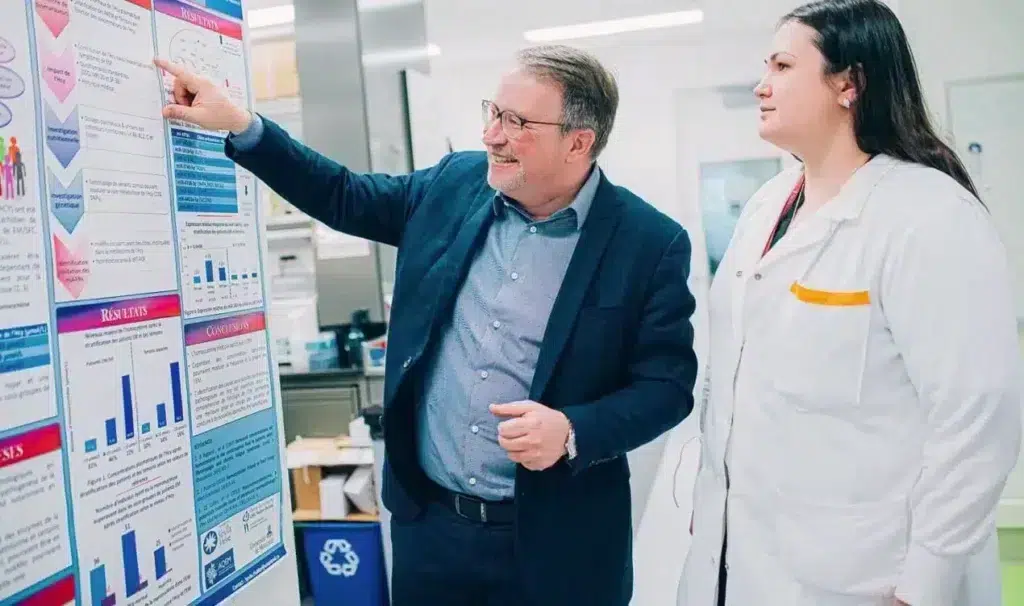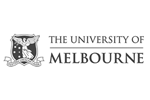Copyright © 2025 Open Medicine Foundation. All Rights Reserved.
With ME/CFS or Long COVID, your old life fades away. You lose contact with family and friends. You have to explain your illness again and again. Even your doctor doesn’t understand what is happening to you.
Sometimes you feel helpless and forgotten. It’s unfair that you must be your own doctor, researcher, and advocate.
You are not alone. A staggering 85 million individuals face multisystem diseases like ME/CFS and Long COVID.
It’s time for action.

ME/CFS and Long COVID disrupt multiple body systems. Traditional research looks at one system at a time. That approach doesn’t work with complex diseases. Collaborative multisystem research is the path that will lead back to a fulfilling life.
OMF recruits experts from different medical specialties to get you back to a fulfilling life.

Collaborative research is key. Every donation brings us closer to the answers we all seek.
By using disease models, researchers can pinpoint targets for intervention and create more precise diagnostic tools. Ultimately, this sets the stage for successful treatments.
ME/CFS and Long COVID are challenging conditions to diagnose. There are no specific biomarkers or definitive tests. This delays diagnosis which prolongs suffering and uncertainty for patients.
Millions of patients struggle with chronic pain, fatigue, and many other disabling symptoms. Your donation helps fund research for treatments.
It’s challenging to find a healthcare provider that is knowledgeable about multisystem disease. OMF funds medical education to help health care providers understand the challenges you face.
We get it. We, too, are patients, parents, or partners of someone with multisystem disease. We are passionate about finding a cure.
At OMF, research is a team sport. We take a systems biology approach at our seven global Collaborative Research Centers. We have a world-renowned Scientific Advisory Board overseeing the process. Instead of waiting on publications, we share results in real-time.
OMF believes multisystem disease should not be a life sentence but a solvable puzzle.














Neuroendocrine System: Dysfunctions in the hypothalamic-pituitary-adrenal (HPA) axis and hypothalamic-pituitary-gonadal (HPG) axis have been observed, leading to abnormalities in stress response, sex hormone levels, and autonomic nervous system regulation.
Immune System: The immune system is composed of white blood cells, antibodies, and other components. It defends the body against infections and diseases, helping to maintain overall health
Cardiovascular System: The cardiovascular system, comprising the heart, blood vessels, and blood, is responsible for transporting oxygen, nutrients, hormones, and waste products throughout the body. Its efficient functioning ensures the delivery of essential substances and the removal of waste products.
Metabolism: Metabolism involves dysregulation in energy production, particularly in ATP synthesis and mitochondrial function. Abnormalities in carbohydrate, lipid, and amino acid metabolism have also been observed. Understanding these metabolic dysfunctions can lead to symptoms such as fatigue and muscle pain.
Genetics: Genetics may contribute to an individual's susceptibility to multisystem disease, including variations in immune system genes, genes involved in energy metabolism, and genes related to neurotransmitter function.
Multiomics: Multiomics combines various omics technologies such as genomics, transcriptomics, and proteomics. By analyzing multiple layers of biological data, multiomics provide a comprehensive understanding of the molecular mechanisms underlying multisystem diseases.
Diagnostics: Diagnostic studies help identify specific biomarkers, imaging techniques, and diagnostic criteria that aid in distinguishing different diseases within the multisystem spectrum.
Treatments: Treatment studies evaluate the efficacy and safety of potential interventions. By conducting rigorous clinical trials and treatment studies, researchers can refine existing therapies, develop new interventions, and provide evidence-based guidelines for healthcare providers.
Systems biology: Systems biology is an interdisciplinary approach that combines biology, mathematics, and computational analysis. It helps identify key pathways, biomarkers, and potential therapeutic targets, leading to personalized and more effective treatments for multisystem disease patients.
Pathogens: Infections can trigger or exacerbate symptoms, leading to increased fatigue, pain, and cognitive difficulties. Pathogens can also contribute to immune system dysregulation and inflammation.
Click on each system to read a description.
By funding studies that examine multiple systems, researchers can see how ME/CFS and Long COVID develop. This approach can lead to more effective treatments and improved quality of life.
What will happen if research remains focused on one system at a time?
How will your life shrink? How many graduations, birthday parties, or everyday activities will you miss? What will happen with your career?
Something has to change.

Collaborative multisystem research will unlock the door to treatments and cures. OMF has already raised over $45 million to fund research.
With your help, we can get to life-changing answers faster.
These centers are dedicated to diagnosing, treating, and ultimately curing ME/CFS and Long COVID.
Our Scientific Advisory Board brings together brilliant scientists, including a Nobel laureate and five National Academy of Sciences members.
In partnership with Bateman Horner Center, MERC provides education and resources on ME/CFS and related conditions for healthcare providers and patients.
With your support, OMF funds groundbreaking research and medical education. We bring hope to those who need it most.
We bring together top researchers in multiple specialties — scientists dedicated to diagnosing, treating, and ultimately curing ME/CFS and Long COVID.
Researchers share data, collaborate and build on each other’s work. Scientific progress moves faster that way.
Even small breakthroughs can make a big difference when scientists share their ideas.
Unlike traditional research, we don’t wait for publication before we communicate our findings. We regularly post research updates on our website and through email. Make sure you subscribe to our latest news.
OMF is a non-profit 501(c)(3) organization
(EIN# 26-4712664). All donations are tax-deductible to the extent allowed by law.



Open Medicine Foundation®
29302 Laro Drive, Agoura Hills, CA 91301 USA
Phone: 650-242-8669
info@omf.ngo
Copyright © 2025 Open Medicine Foundation. All Rights Reserved.
What are the advantages of giving from your Donor Advised Fund (DAF)?
How do I make a donation through my DAF?
Just click on the DAF widget below. It is simple and convenient to find your fund among the over 900 funds in our system.
Still can’t find your fund?
Gifting of Stock
Broker: Schwab
DTC #: 0164
Account #: 47083887
Account Registered as:
Open Medicine Foundation
29302 Laro Drive
Agoura Hills, CA 91301
Please speak to your personal tax advisor and then email or call OMF at 650-242-8669 to notify us of your donation or with any questions.